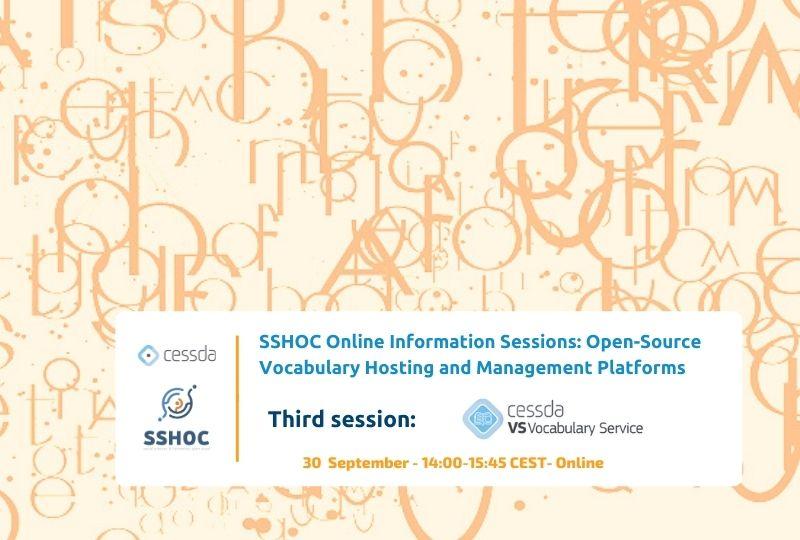
- Social Sciences & Humanities Open Cloud
SSHOC Online Information Sessions: Open-Source Vocabulary Hosting and Management Platforms - Third session - CESSDA Vocabulary Service

Date:
30 September 2020 - 14:00 to 15:45
Location:
Online
In this information session, you will learn about the CESSDA Vocabulary Service which enables users to discover, browse and download controlled vocabularies in a variety of languages. The service is provided by the Consortium of European Social Science Data Archives (CESSDA).
The majority of the source (English) vocabularies included in the service have been created by the DDI Alliance. The Data Documentation Initiative (DDI) is an international standard for describing data produced by surveys and other observational methods in the social, behavioural, economic, and health sciences.
4:00 - 14:30 Introduction to CESSDA Vocabulary Service - Presenter: Taina Jääskeläinen, Finnish Social Science Data Archive, Tampere University
14:30 - 15:00 Use Case 1: CESSDA Vocabulary Service is used by archives to translate those vocabularies that are included in the CESSDA metadata model into their language. Thus the tool is used for translation. Then the vocabularies translated will be used in metadata published in data catalogues.The aim is to harmonise metadata across organisations. - Taina Jääskeläinen, Finnish Social Science Data Archive, Tampere University
15:00 - 15:30 Use Case 2: Vocabularies can be implemented in a metadata editor, thus preventing people producing metadata records from using non-vocabulary terms in CV elements.
15:30 - 15:45 Q & A - Moderator
| Presentation | Presenter |
|---|---|
| Introduction to CESSDA Vocabulary Service [slides][recording] | Taina Jääskeläinen Finnish Social Science Data Archive, Tampere University |
|
Use Case 1: How CESSDA Vocab Service is used by archives for translation [slides][recording] |
Taina Jääskeläinen Finnish Social Science Data Archive, Tampere University |
|
Use Case 2: How CESSDA Vocab Service content is used by the Swedish National Data Service in its metadata editor [slides][recording] |
Johan Fihn Marberg Swedish National Data Service (SND) |
First Session WIKIBASE
Second session: SKOSMOS
Overview - CLARIN website
